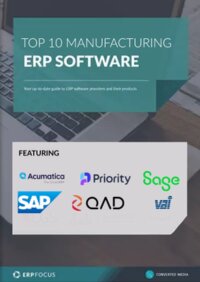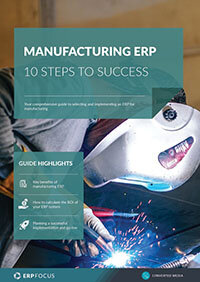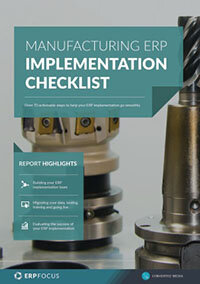Cloud ERP for Manufacturers: Can It Deliver?
Although you have to plow through a lot of reading material, and learn to critically interpret the hyperbole surrounding ERP cloud computing, you eventually reach the conclusion that traditional manufacturing is not stampeding to move their ERP application to cloud computing. This doesn’t mean that ERP vendors are not improving and expanding their manufacturing offerings in the cloud; Oracle, SAP, NetSuite, Plex, Epicor, and Infor are among the ERP cloud vendors courting manufacturers. But the numbers tell a story of caution and deliberation. Gartner estimates that only 7% of manufacturing ERP systems was being run from the cloud in 2011, and they are estimating it to more than double to 16% by 2015. The math around that growth rate – anywhere from 14% to 25% annually – is what is cited as irrefutable evidence that cloud computing is winning. Without citing the baseline, this is a misleading statistic; the fact remains that by the end of 2015 – a pretty long way off in technology terms – 84% of manufacturing still will not be on the cloud.
These numbers are not because cloud computing does not have cost or technical advantages, it is because manufacturing ERP systems are inherently more complex than many service applications. In particular, production reporting, engineering change management, product costing, inventory movements, and supply chain planning, all have industry-specific nuances, and organizational requirements, that an out-of-the-box SaaS offering is rarely able to satisfy.
A Hybrid Approach
A predictable and recurring response to this problem is to suggest a hybrid ERP approach. According to this philosophy, you should let on-site ERP handle the manufacturing things that the cloud doesn’t do well, and let the cloud ERP handle modules or processes – like HR, or Finance – that are more vanilla, and have proven advantage. Also, you should consider letting new acquisitions, overseas holdings, or unintegrated business units create their own cloud ERP instance.
At this point, one has to really think through this advice for holistic practicality. Doesn’t the process of intentionally fragmenting your ERP system pretty much eliminate the “E” part of the abbreviation? Are the piecemeal benefits achieved cloud computing worth a piecemeal ERP system?
A small minority out there are willing to wonder in writing if cloud computing will ever be the right answer for complex manufacturing operations. Heavy industry has very different IT needs than Google or Amazon. It is no more logical to say that if cloud computing works well for Amazon, then it ought to work well for heavy industry than it is to say that if Amazon learned to operate a virtual retail store, then heavy industry ought to learn to run a virtual factory.
ERP implementations in manufacturing operations are expensive and risk prone because they are complicated and exhaustive. It will be wise of the cloud ERP sector not to push manufacturers into a cloud solution until they are certain they can deliver long term value on a complicated and exhaustive application.
Free white paper
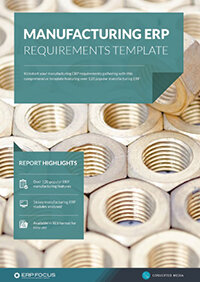
Manufacturing ERP requirements template
Over 120 critical manufacturing ERP features in one downloadable spreadsheet
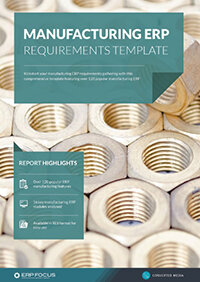
Featured white papers
Related articles
-

4 training tips for manufacturing ERP success
These four training tips will help your employees get the most out of your new manufacturing ERP ...
-

Secret KPI: Why Your ERP Implementation Team Matters More Than Software
Learn how Godlan ensures successful ERP implementation for manufacturers with proven strategies &...
-

ERP for make-to-order manufacturing
How can ERP help your make-to-order manufacturing business thrive?


